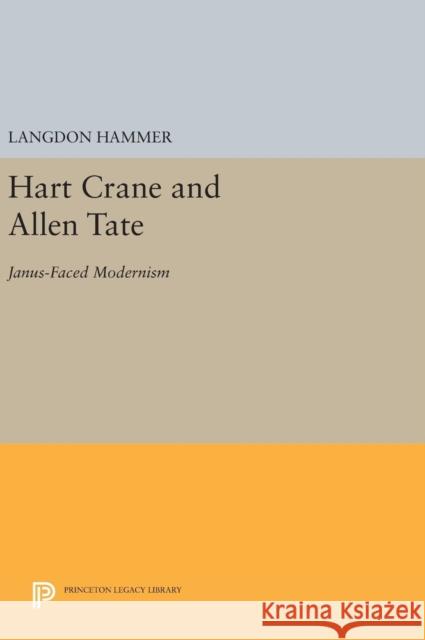Hart Crane and Allen Tate: Janus-Faced Modernism » książka
Hart Crane and Allen Tate: Janus-Faced Modernism
ISBN-13: 9780691654393 / Angielski / Twarda / 2017 / 296 str.
Hart Crane and Allen Tate: Janus-Faced Modernism
ISBN-13: 9780691654393 / Angielski / Twarda / 2017 / 296 str.
(netto: 513,10 VAT: 5%)
Najniższa cena z 30 dni: 532,17
ok. 30 dni roboczych.
Darmowa dostawa!
Focusing on the vexed friendship between Hart Crane and Allen Tate, this book examines twentieth-century American poetry's progress toward institutional sanction and professional organization, a process in which sexual identities, poetic traditions, and literary occupations were in question and at stake. Langdon Hammer combines biography and formalist analysis to argue that American modernism was a Janus-faced phenomenon, at once emancipatory and elitist, which simultaneously attacked traditional cultural authority and reconstructed it in new forms. Hammer shows how Crane and Tate, working in relation to each other and to T. S. Eliot, created for themselves the competing roles of "genius" and "poet-critic." Crane embraced the self-authorizing powers of the individual talent at the cost of standing outside the emerging consensus of high modernist literary culture, an aesthetic isolation which converged with his social isolation as a gay man. Tate, turning against Crane, linked the modernist defense of tradition to an embattled heterosexual masculinity, while he adapted Eliot's stance to a career sustained by criticism and teaching. Ending his book with a discussion of Robert Lowell's career, Hammer maintains that Lowell's "confessional" poetry recapitulates the conflict enacted by Crane and Tate.Originally published in 1993.The Princeton Legacy Library uses the latest print-on-demand technology to again make available previously out-of-print books from the distinguished backlist of Princeton University Press. These editions preserve the original texts of these important books while presenting them in durable paperback and hardcover editions. The goal of the Princeton Legacy Library is to vastly increase access to the rich scholarly heritage found in the thousands of books published by Princeton University Press since its founding in 1905.











